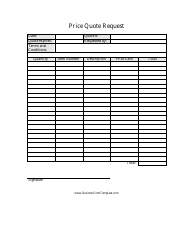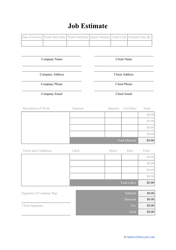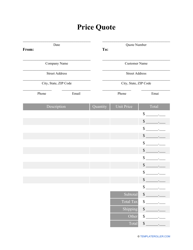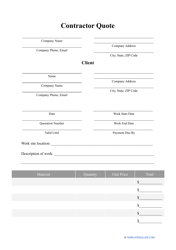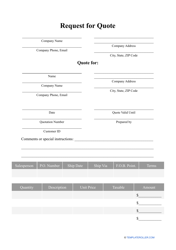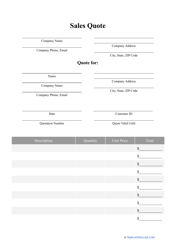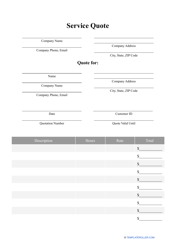Quote Vs Estimate

In some instances, a company cannot provide concrete pricing for the products or services that they provide because the various factors that make up the price will differ depending upon the specific requirements of the customer. This is particularly true for companies that offer services that are not identical to each other. In such cases, it is impossible to provide a price using a general price list and as a result, the company has to form either a Quote or an estimate. It is important that as a customer, you can differentiate between the two in order to make an informed decision regarding the company that you would like to select to carry out a specific service or purchase goods from.
What Is a Quote?
When looking at a Quote in Business, it is important to know that a quote is more accurate. A quote will provide a guaranteed price that will not be altered once the customer has agreed to it. Businesses must stick to this price, regardless of whether or not the said job turns out to be more expensive than initially calculated. If you are providing a quote, be sure to specifically include what is included in this price and what other additional fees could be included. If you think that producing such a document could result in substantial differences in the final sum, you should consider writing an estimate instead.
What Is an Estimate?
An estimate produces an approximate cost regarding the specific purchase of goods or services. It is not a formal agreement and does not take into account any other potential costs that could crop up. If you produce an estimate, you should produce several of these to account for the most basic prices involved, all the up to the most expensive ones to ensure that your customer has an accurate feel for the potential prices involved.
What Is the Difference Between an Estimate and a Quote?
The difference between a quote and an estimate lies with the fact that one is binding (a quote, providing a customer signs for it) and one is not. To make an informed decision, you need to consider whether or not you can guarantee fixed prices for materials and labor. Either way, you should clearly outline the various stages involved in the process in order to avoid any potential conflict in the future. After all, you do not want to make it out as if you are promising one price, when in reality the final price will be much higher. This will deter any potential clients from approaching you. In this case, you should consider adding an expiry date for when the offer will no longer be valid for. After all, you do not want a client to reach out to you a year after a quote or estimate after prices for products or labor have increased considerably which will result in a new quote or estimate.
Related Topics:
